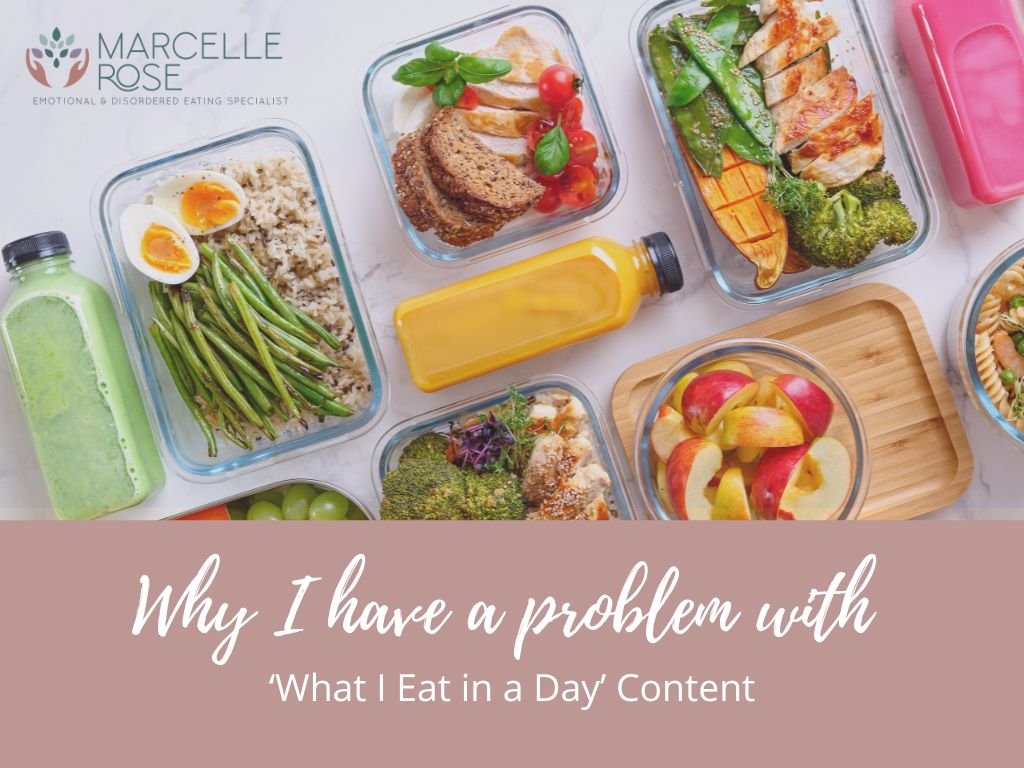In today's age of social media, we're bombarded with influencers, celebrities, and so-called 'experts' sharing the details of their daily food intake. We're told to eat like them if we want to look like them, be as healthy as them, or achieve wellness as they have. While I’m always interested in food inspiration and recipe ideas, this narrative can be problematic for everyone, especially for young people growing up with the pervasive influence of social media or particularly if you struggle with your relationship with food and your body.
Famous celebrities such as Jennifer Aniston, Victoria Beckham, and Gwyneth Paltrow have openly shared their daily food routines, often emphasising that they never deviate from this plan. The message is clear - follow their lead, and you'll achieve the same results.
Similarly, social media often presents a small, carefully curated, and excessively filtered part of someone's life. We don't really know what their relationship with food is like, and what works for one person certainly doesn't work for all.
We are all unique individuals with our own health history, biochemistry, and genetics. Each body has different requirements when it comes to food intake, nutrients, and calories. Everyone has their own food history and relationship with their body.
SO what could it mean for those constantly absorbing these messages?
Social media platforms have become ubiquitous in our lives, and with them, the prevalence of 'What I Eat in a Day' posts has soared. These posts are considerably influential and affect our perceptions of food, body image, and well-being.
Myths and Misconceptions:
Social media creates an environment where we are exposed to curated, picture-perfect representations of others' lives, often with a focus on diet and exercise. This curated content can be misleading and detrimental, especially if you are already struggling with eating disorders or disordered eating. Many myths have become deeply held beliefs about food, portion sizes, and calorie intake. Unfortunately Many 'What I Eat in a Day' posts promote restrictive diets, which can be extremely harmful and contribute to disordered eating and eating disorders.
Creates Anxiety, Guilt, and Shame:
If you face the daily challenges of managing their relationship with food, these posts can exacerbate feelings of anxiety, guilt, and shame. This content has the potential to trigger past trauma or reinforce negative thought patterns.
Low Self-esteem:
These posts often lead to questioning your own choices and self-worth, making you feel inadequate in comparison. This can spiral into a vicious cycle of low self-esteem and self-doubt. It's easy to fall into the trap of comparing your eating habits, body, and lifestyle to those portrayed in these posts.
What Can You Do About It?
If you want to continue using social media, consider looking at the content you encounter with a critical eye. Think about who is posting this content and what they are trying to promote. If these things are triggering or driving unhelpful thinking about your eating and body, then block and unfollow them.
You can also work on creating a more helpful feed by following accounts from creators of all body sizes, ages, races, and genders who promote body neutrality, acceptance, and a non-diet approach or talk about eating disorder recovery.
Focus on what foods feel good in your body and what your body needs. If you need help with this, you can download a free guide like "Breaking the Cycle," which offers four actionable steps to improve your relationship with food and your body.
The key is to prioritise your own unique needs and well-being. Remember that there is no one-size-fits-all approach to food, and your relationship with your body is a personal journey that should not be dictated by online trends.






